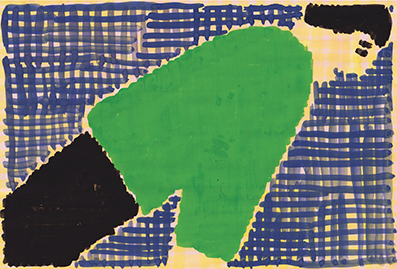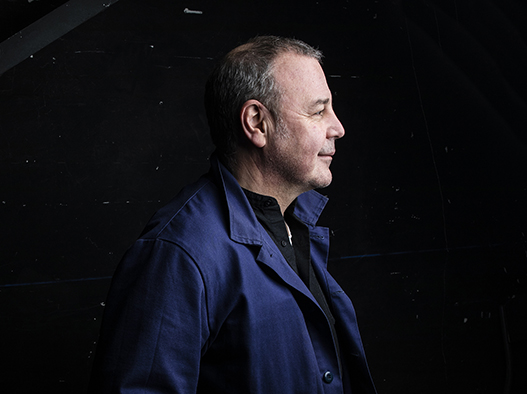Watch video

History play and long epic poem, Richard II plunges us, from the outset, into a family saga with complex repercussions, and reveals, line after line, the true subject at stake.
Against the background of the cold war between Richard and his cousin Bolingbroke over the throne of England, Shakespeare ponders the exercise of power. In our changing world, this vast subject is just as relevant today as ever. He may be the legitimate king, but Richard keeps poor company and is divorced from his people; Bolingbroke, for his part, seeks to gain legitimacy through the people. From treason to compromise, corruption to renunciation, how far can we push the boundaries of a political ethic in order to strengthen our grip on power and bolster our legitimacy?
This is why we still need Shakespeare today: he forces us to react and reflect, to look beyond appearances and to avoid taking things for granted; he makes us seek out complexity and read between the murky lines of history. Richard’s path is traced by history, by his awareness of his past mistakes and by the pivotal moment that heralds the rapidly approaching end of a historical cycle.
The staging by Christophe Rauck reveals all the subtlety of this tragedy. Everything is going to play out in the Commons, where each crosses swords and makes their case. The tension is palpable, from start to finish. Richard has a premonitory vision. He knows what his downfall will be.
He does not renounce the throne through weakness. He creates a work from his abdication: this is where the greatness and ambiguity of his character lies.
[INTERVIEWS] – À lire
« La légitimité que Richard II a en tant que roi jupitérien, moi, je dois l’avoir en tant qu’acteur qui va jouer ce personnage de Shakespeare. » Micha Lescot pour Théâtral Magazine
« Richard II est à l’image de son époque: il est la crise. Lui-même est en crise. C’est pourquoi il n’est pas assez radical, comme s’il avait eu le pouvoir trop tôt. Et au moment de sa destitution, son dépouillement est magnifique. » Micha Lescot pour Sceneweb
« Je pense qu’on approfondit petit à petit, à chaque fois qu’on travaille sur un auteur, même si c’est le même, et Shakespeare particulièrement, parce que ses œuvres sont monumentales. » Christophe Rauck pour Théâtre(s)
« Ce qui me plaît dans cette pièce [Richard II], c’est qu’elle interroge la force symbolique des hommes de pouvoir et comment leur parole les dépasse. En politique, la parole que l’on porte est toujours plus grande que ce qu’on est. » La Terrasse
[PRESS ARTICLES] – À lire
« Focalisée sur la chute d’un roi dans un monde où les adversaires croissent sur fond d’héritage spolié et de dynastie à refonder, la pièce irradie une saveur politique singulière. » Télérama

Christophe Rauck crée sa compagnie en 1995 avec des comédiens issus du Théâtre du Soleil. De 2003 à 2005, il est directeur du Théâtre du Peuple de Bussang, où il crée Le Dragon d’Evgueni Schwartz, La Vie de Galilée de Bertolt Brecht et Le Revizorr de Nicolas Gogol. Par la suite, il met en scène au Théâtre des Abbesses Getting Attention de Martin Crimp, et L’Araignée de l’Éternel d’après des textes de Claude Nougaro, Le Mariage de Figaro de Beaumarchais à la Comédie-Française avant de diriger le TGP-centre dramatique national de Saint-Denis de 2008 à 2013. Il y créera Cœur ardentd’Alexandre Ostrovski, Têtes rondes et têtes pointues de Bertolt Brecht, Cassé de Rémi De Vos et Les Serments indiscrets de Marivaux (Grand prix du Syndicat de la critique). Pendant cette période, il monte également Phèdre de Racine et deux opéras de Monteverdi. En 2014, il est nommé directeur du Théâtre du Nord et de l’école rattachée, l’École du Nord, à Lille. Il met en scène trois textes de Rémi De Vos (Toute ma vie j’ai fait des choses que je ne savais pas faire, Ben oui mais enfin bon et Départ volontaire), Figaro divorce d’Odön von Horvath (Prix Georges-Lerminier du Syndicat de la critique : meilleur spectacle créé en province), Comme il vous plaira de Shakespeare et récemment, deux textes de Sara Stridsberg :La Faculté des rêves et Dissection d’une chute de neige. En 2017, il crée à Moscou Amphitryon de Molière, avec huit anciens disciples de Piotr Fomenko. Invité au Festival d’Avignon 2018 avec les jeunes acteurs sortant de la promotion 5 de l’École du Nord, Christophe Rauck y présente Le Pays lointain (Un arrangement)</em de Jean-Luc Lagarce. Depuis janvier 2021, Christophe Rauck dirige le Théâtre Nanterre-Amandiers, centre dramatique national.


20 Sep — 15 Oct 2022 | Théâtre Nanterre-Amandiers |
20 — 21 Oct 2022 | L’Onde Théâtre - Centre d’art de Vélizy-Villacoublay |
8 Nov 2022 | Théâtre de Pau |
Ajoutez le site sur votre écran d'accueil pour un accès plus rapide !
Appuyez sur
puis “Sur l'écran d'accueil”